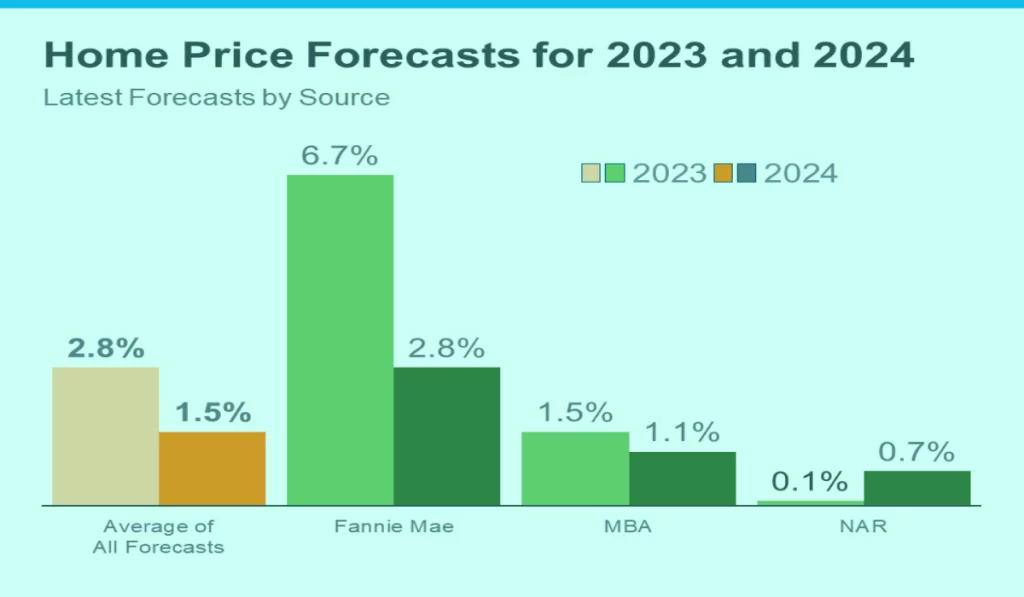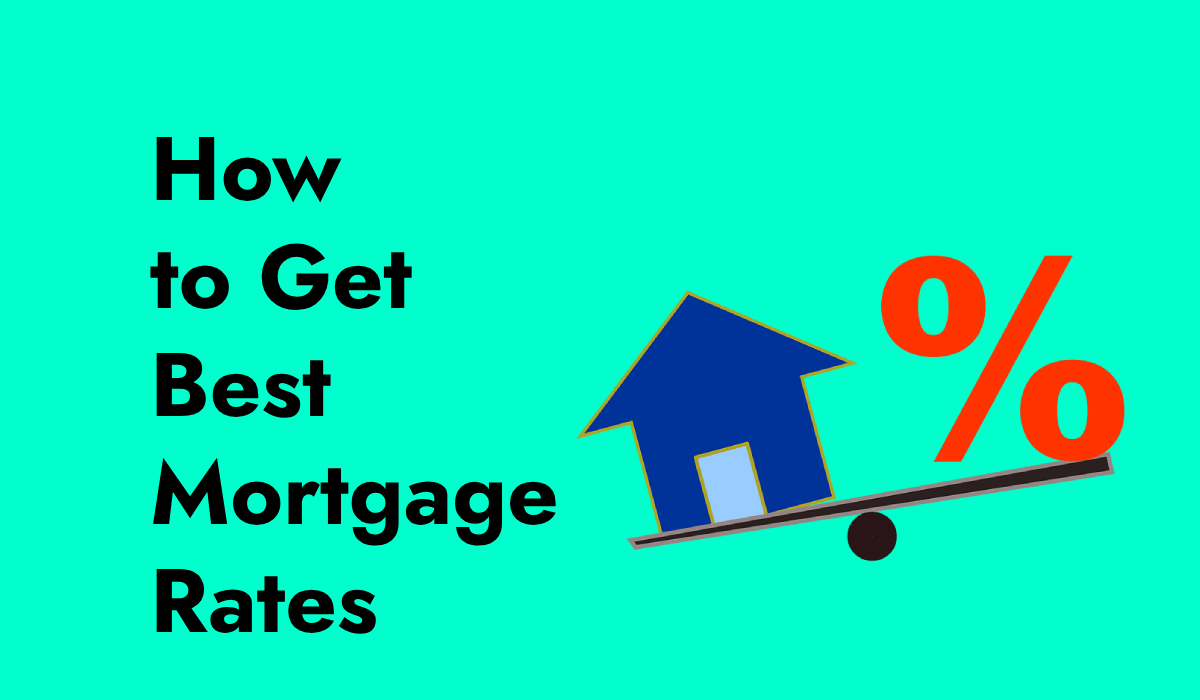Mortgage rate is significantly higher than homebuyers would prefer. Fortunately for borrowers, there are strategies to position themselves to acquire the best possible mortgage rate, even in this high-rate market. Here’s how to find the greatest mortgage rate for your home purchase.
4 steps for getting the best mortgage rate
As you explore your alternatives, it’s a good idea to position yourself as effectively as possible to ace the loan application and secure the best mortgage rate. “There are three pillars: your credit score, your income (which is converted to a debt-to-income ratio), and your assets,” explains Josh Moffitt, president of Silverton Mortgage in Atlanta.
Improve your credit score.
If you’re looking for ways to acquire a cheaper mortgage interest rate, improving your credit score is a smart place to start. A lower credit score may not absolutely prevent you from getting a loan, but it can mean the difference between getting the lowest feasible rate and being stuck with more expensive borrowing terms.
“A credit score is always an important factor in determining risk,” said Valerie Saunders, president of the National Association of Mortgage Brokers. “A lender will use the score as a baseline in determining a person’s ability to repay debt. “The higher the score, the more likely the borrower will not default.”
To be considered for a conventional mortgage, you should have a score of 620 or better. However, borrowers with the greatest credit scores (typically 740 or higher) receive the best mortgage rates. In general, the lender’s confidence in your capacity to repay on time determines the interest rate it will provide.
To increase your credit score, pay your bills on time and reduce or eliminate credit card balances. If you must carry a balance, keep it within 20 to 30 percent of your authorized credit limit. In addition, verify your credit score and report on a regular basis for any errors. If you discover any problems, fix them before applying for a mortgage.
Related: Current Mortgage Refinance Rates July 2024


- Est. APR = 9.95% - 14%
- Loan Amount = $150,000 - $3,000,000
- Minimum FICO Score: N/A
5
editorial team. We score based on factors
that are helpful for consumers, such as
how it affects credit scores, the rates and
fees charged, the customer experience,
and responsible lending practices.

- 24/7 Support
- Bridge & Rental Loans
- Equal Housing Opportunity
5
editorial team. We score based on factors
that are helpful for consumers, such as
how it affects credit scores, the rates and
fees charged, the customer experience,
and responsible lending practices.
- Check Your Eligibility
- Equal Housing Opportunity
5
editorial team. We score based on factors
that are helpful for consumers, such as
how it affects credit scores, the rates and
fees charged, the customer experience,
and responsible lending practices.
Establish a solid employment record.
You are more appealing to lenders if you can show at least two years of consistent employment and earnings, preferably from the same employer. Prepare to provide pay stubs from at least the 30-day period before to applying for your mortgage, as well as W-2s from the previous two years. You will also be required to submit confirmation of any bonuses or commissions received.
If you are self-employed or have many part-time jobs, qualifying may be more challenging, but it is not impossible. If you are self-employed, you may be required to provide business records, such as profit and loss statements, in addition to tax returns, to complete your mortgage application.
What if you’re a recent graduate starting your job or returning to work after a long absence? Lenders may usually verify your employment if you have an official job offer, as long as it specifies your salary. The same is true if you’re currently working but have a new job lined up. Lenders may flag your application if you are transitioning to an entirely new industry, so keep this in mind if you are making a significant change.
pauses in your job history will not always disqualify you, but the length of such pauses is important. If you were unemployed for only a brief period of time owing to sickness, you may be able to explain the gap to your lender.
Related: Best Mortgage Deals: Fixed vs. Adjustable Loans
Save for a downpayment.
Putting more money down will help you get a cheaper mortgage rate, especially if you have the liquid cash to cover a 20% downpayment. Of course, lenders allow lower down payments, but less than 20% typically requires you to pay private mortgage insurance (PMI). PMI charges between 0.46 percent and 1.50 percent of the original loan amount per year. The sooner you can pay down your mortgage to less than 80% of the total value of your property, the sooner you will be able to eliminate mortgage insurance and lower your monthly payment.
If you’re a first-time homeowner who can’t afford a 20% down payment, there are special loans, grants, and programs available to assist you buy a home. Eligibility varies every program, but it is typically determined by factors like as income and if you are a first-time homebuyer.
Related: Current HELOC & Home Equity Loan Rates: July 2024
Understand your debt to income ratio.
Your debt-to-income (DTI) ratio compares the amount you owe to the amount you earn. Specifically, it compares your total monthly debt payments to your gross monthly income.
A common rule among lenders is to avoid mortgages that require a payment of more than 28 percent of your gross monthly income. Your overall DTI should remain below 36%.
So, if you make $5,000 per month, you’ll want a mortgage payment of no more than $1,400 ($5,000 x 0.28) and to keep your total debt payments under $1,800 ($5,000 x 0.36).
The maximum DTI for a conventional loan is 45%, while the maximum for FHA loans is 43%. However, there may be some exceptions if you satisfy certain criteria, such as having substantial savings.
If you’re trying to pay off your debt, the avalanche and snowball approaches can help you get there faster.

- Est. APR = 9.95% - 14%
- Loan Amount = $150,000 - $3,000,000
- Minimum FICO Score: N/A
5
editorial team. We score based on factors
that are helpful for consumers, such as
how it affects credit scores, the rates and
fees charged, the customer experience,
and responsible lending practices.

- 24/7 Support
- Bridge & Rental Loans
- Equal Housing Opportunity
5
editorial team. We score based on factors
that are helpful for consumers, such as
how it affects credit scores, the rates and
fees charged, the customer experience,
and responsible lending practices.
- Check Your Eligibility
- Equal Housing Opportunity
5
editorial team. We score based on factors
that are helpful for consumers, such as
how it affects credit scores, the rates and
fees charged, the customer experience,
and responsible lending practices.

 Read More
Read More 





One Response